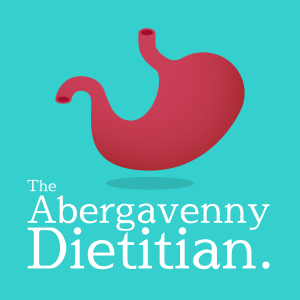I wrote in my last blog post about how mental state can affect irritable bowel syndrome, and how the gut can be thought of as “the second brain”. The gut – brain axis works both ways. Your food could also affect your mood.
How what you eat can affect how you feel
On a very basic level, what you eat will affect your blood sugar levels, and therefore your energy and concentration levels. Not having enough glucose in the blood (hypoglycaemia) makes us feel weak, tired and ‘fuzzy minded’, or irritable and depressed. Drinking a strong coffee is not the answer!
Eating a good breakfast will help you to feel alert and able to focus during the morning, and continuing to have regular meals throughout the day will prevent your blood sugar dropping too low. Try to choose foods which release their energy slowly (like oats and wholegrain breakfast cereals, wholegrain bread, pasta, rice, dairy foods, fruits and vegetables) rather than sugary foods which will give you blood sugar “spikes” followed by “crashes”.
Eat yourself happy
Serotonin is a chemical released in the brain, that makes us feel happy. Low levels can cause problems including depression and poor sleep. Serotonin is made out of a protein (tryptophan) but needs carbohydrate-rich foods to work. One of the risks with the current fashion for low-carbohydrate diets, therefore, is low mood, poor concentration and sleeping problems.
However, it is also important to include some protein at every meal. This helps us to feel full, steady the energy release into our blood, help our bodies repair and heal themselves – and also keep our mood on an even keel. Particularly good sources of serotonin include fish, poultry, eggs, spinach, soya beans, nuts and seeds. Serotonin also needs zinc and vitamin C in order to do its job – another good reason to include wholegrains, fruit and vegetables in our daily diet!
Research also suggests that Omega-3 essential fatty acids can help prevent depression. Oily fish is the richest source of this “healthy fat”. For example, a study in Norway found that people who consumed fish oil were about 30% less likely to experience depression. For people who prefer not to eat fish, vegetarian alternatives (for example flaxseeds and walnuts) are available.
An interesting case study: Supplements reduce offending rates in a prison
Here is an excellent illustration of the power of improving your diet! Some ground-breaking research on nutrition and behaviour was carried out in Aylesbury Young Offenders’ Institution in 1996-7. Antisocial behaviour amongst the prisoners was a real problem at the time. The researchers found prisoners typically made poor food choices from the prison menu, and they wanted to test what would happen to their behaviour if they were given supplements of vitamins, minerals and essential fatty acids. Prisoners were randomly divided into two groups and given either a placebo (fake pill) or a supplement containing vitamins, minerals and omega-3 fatty acids. In the group given the supplement, the amount of anti-social behaviour fell by over 25% compared with the placebo group.
This research clearly has implications for those on a poor / restricted diet in the community.
As a general rule, eating regular meals with wholegrains, protein foods, a good variety of fruit and vegetables along with some healthy fats will supply a good balance of nutrients for overall health including mood. However: food, gut health and mental health is a fairly new and exciting area, where new discoveries are being made all the time. It is also one of my areas of interest, and there is far more to talk about than will fit in one blog article! So – watch this space; or contact me if you’d like some individual advice!
Disclaimer: All content found on this website, including images, videos, infographics and text were created solely for informational purposes. This content should never be used for the purpose of diagnosis or treatment of any medical conditions. Content shared on my website is not meant to be used as a substitute for advice from a regulated medical professional. Reliance on the information provided on my website as a basis for patient treatment is solely at your own risk. I urge all my customers to always consult a doctor or a regulated medical professional before implementing any of the advice found on these blogs.


